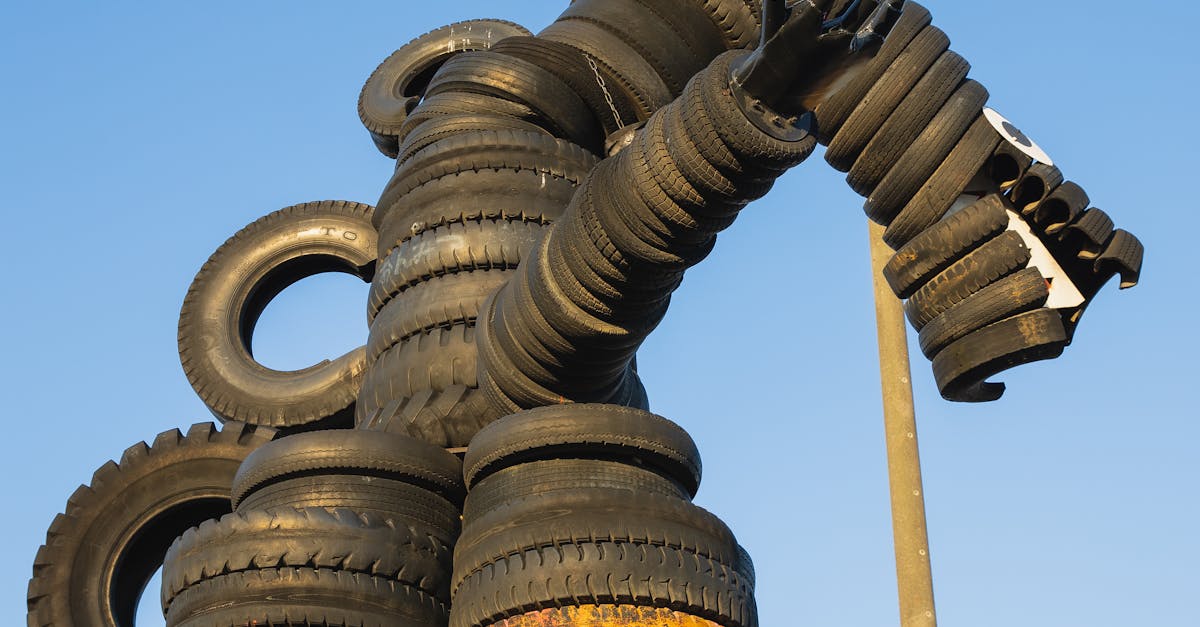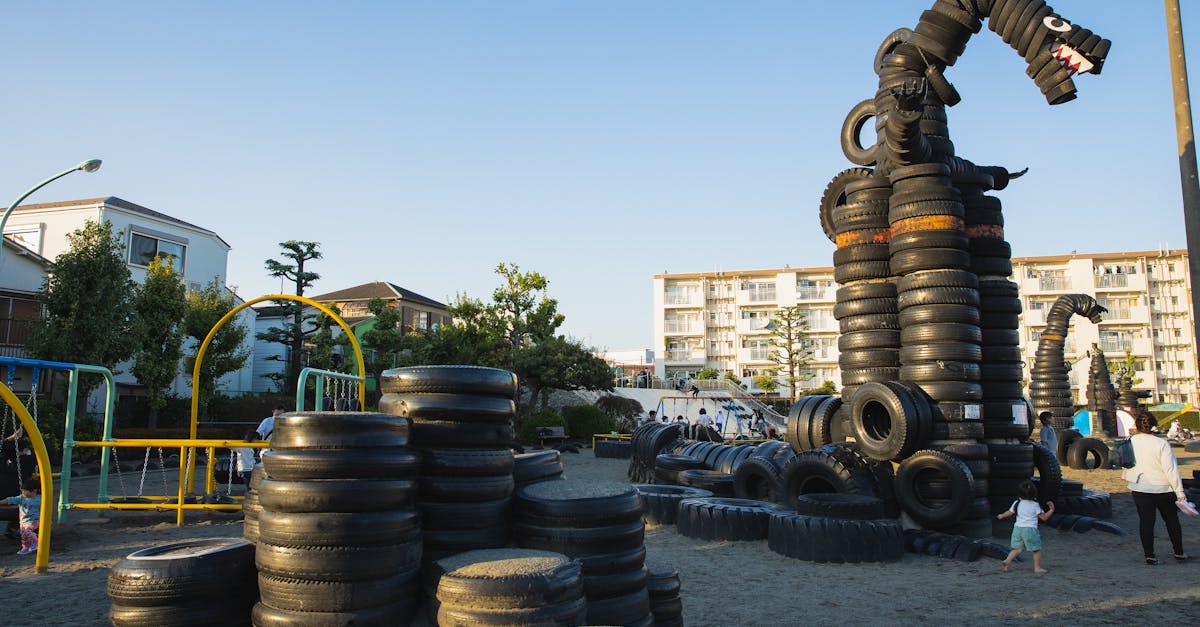
Table Of Contents
Relationship Between Improper Yard Waste Disposal and Climate Change
Improper yard waste disposal has a significant impact on our environment, with direct consequences for climate change. When yard waste is not disposed of properly, it often ends up in landfills where it decomposes anaerobically, leading to the production of methane gas. Methane is a potent greenhouse gas, with a much higher global warming potential than carbon dioxide. As a result, the improper disposal of yard waste contributes to the overall carbon footprint and exacerbates the effects of climate change.
Yard waste removal practices are crucial in mitigating the environmental impact on climate change. By composting or mulching yard waste instead of sending it to landfills, we can reduce the amount of methane produced and help lower our carbon footprint. Additionally, proper disposal methods promote sustainability and support efforts to combat climate change. It is essential for individuals and communities to prioritize responsible yard waste removal practices to safeguard the environment for current and future generations.
Methane Production and Carbon Footprint
Improper yard waste disposal can lead to the generation of methane gas, a greenhouse gas that contributes to climate change. When yard waste, such as grass clippings and leaves, decomposes in landfills where oxygen is scarce, methane is produced as a byproduct. Methane is significantly more potent than carbon dioxide in trapping heat in the atmosphere, thus exacerbating the greenhouse effect. This signifies the critical importance of proper yard waste removal practices to minimize methane production and its detrimental impact on the environment.
Reducing the carbon footprint associated with improper yard waste disposal is crucial in mitigating the effects of climate change. By composting yard waste or utilizing proper waste collection services, the organic matter can be recycled and utilized beneficially rather than emitting harmful gases. Implementing sustainable yard waste removal practices not only helps in reducing greenhouse gas emissions but also promotes environmental stewardship and contributes positively to addressing broader climate change concerns.
Influence of Improper Yard Waste Disposal on Biodiversity
Improper yard waste disposal poses significant threats to biodiversity, leading to the disruption of ecosystems and the potential loss of plant species. The accumulation of yard waste in landfills contributes to the emission of greenhouse gases, further exacerbating climate change. As yard waste decomposes, it releases methane, a potent greenhouse gas that traps heat in the atmosphere and contributes to global warming, ultimately affecting the delicate balance of biodiversity.
In addition to methane production, improper yard waste disposal can harm biodiversity by altering soil composition and nutrient cycles. When yard waste is not disposed of properly through methods like composting or Yard Waste Removal services, it can lead to nutrient imbalances in the soil, impacting the growth of native plant species and disrupting the habitats of various organisms. This disruption in nutrient cycles can cascade through the ecosystem, affecting the food web and ultimately reducing biodiversity in the affected area.
Disruption of Ecosystems and Loss of Plant Species
Improper yard waste disposal poses a significant threat to local ecosystems, leading to the disruption of natural habitats and the loss of plant species. When yard waste is not disposed of properly, it can accumulate in open spaces, interfering with the growth of native plants and altering the balance of the ecosystem. This can result in a decline in plant diversity, as invasive species often thrive in environments where yard waste is allowed to accumulate unchecked. The removal of yard waste from these areas is crucial in maintaining the health and stability of ecosystems and preserving the native plant species that rely on them for survival.
Moreover, the build-up of yard waste in natural environments can lead to a decrease in soil quality, affecting the availability of essential nutrients for plant growth. As the decomposition of yard waste releases harmful chemicals and alters soil composition, it can impede the growth of native plant species and disrupt the delicate balance of the ecosystem. By properly managing yard waste removal and ensuring that it is disposed of in an environmentally responsible manner, we can help mitigate the negative impacts on local ecosystems and protect plant species from unnecessary harm.
Effects of Improper Yard Waste Disposal on Groundwater Quality
Improper yard waste disposal poses a significant threat to groundwater quality, affecting both surface water and underground water sources. When yard waste, such as grass clippings, leaves, and branches, is left to decompose in inappropriate areas like storm drains or directly on the ground, the risk of harmful chemicals leaching into the soil and eventually reaching groundwater increases. This contamination can lead to an array of issues, including polluted drinking water sources and disrupted aquatic ecosystems. Effective yard waste management through proper disposal methods is crucial in mitigating these risks and preserving the quality of our groundwater supplies.
Yard waste removal through methods like composting or utilizing municipal collection services can greatly reduce the chances of groundwater contamination. Composting yard waste not only diverts it from landfills but also provides a natural way to recycle nutrients back into the soil. Municipal collection services ensure that yard waste is disposed of in designated areas where it can be properly managed or processed for beneficial reuse. By implementing these practices, communities can safeguard their groundwater quality, promote sustainable waste management, and contribute to the overall health of the environment.
Leaching of Harmful Chemicals and Contamination Risks
Improper yard waste disposal can lead to the leaching of harmful chemicals into the soil, posing significant contamination risks. When yard waste, such as grass clippings or leaves, is not disposed of properly, chemicals present in the waste can seep into the ground. This can contaminate the soil and potentially reach groundwater sources, affecting water quality and posing health risks to humans and wildlife.
Yard waste removal is crucial to prevent the leaching of harmful chemicals and reduce the associated contamination risks. Proper disposal methods, such as composting or utilizing designated green waste bins, can help mitigate the impact of yard waste on the environment. By implementing appropriate waste management practices, individuals can contribute to preserving groundwater quality and mitigating the adverse effects of improper yard waste disposal on ecosystems and human health.
FAQS
How does improper yard waste disposal impact climate change?
Improper yard waste disposal contributes to climate change by releasing methane gas during decomposition, which is a potent greenhouse gas that accelerates global warming.
What is the connection between improper yard waste disposal and biodiversity?
Improper yard waste disposal can disrupt ecosystems and lead to the loss of plant species, impacting biodiversity and the overall health of natural habitats.
How does improper yard waste disposal affect groundwater quality?
Improper yard waste disposal can result in the leaching of harmful chemicals into the soil, posing contamination risks to groundwater sources and compromising water quality.
What are the effects of improper yard waste disposal on carbon footprint?
Improper yard waste disposal increases the carbon footprint through methane production, contributing to the overall greenhouse gas emissions and exacerbating climate change.
How can individuals help mitigate the environmental impact of improper yard waste disposal?
Individuals can reduce the environmental impact of improper yard waste disposal by composting organic yard waste, recycling green waste, and following proper disposal guidelines to protect the environment and promote sustainability.



